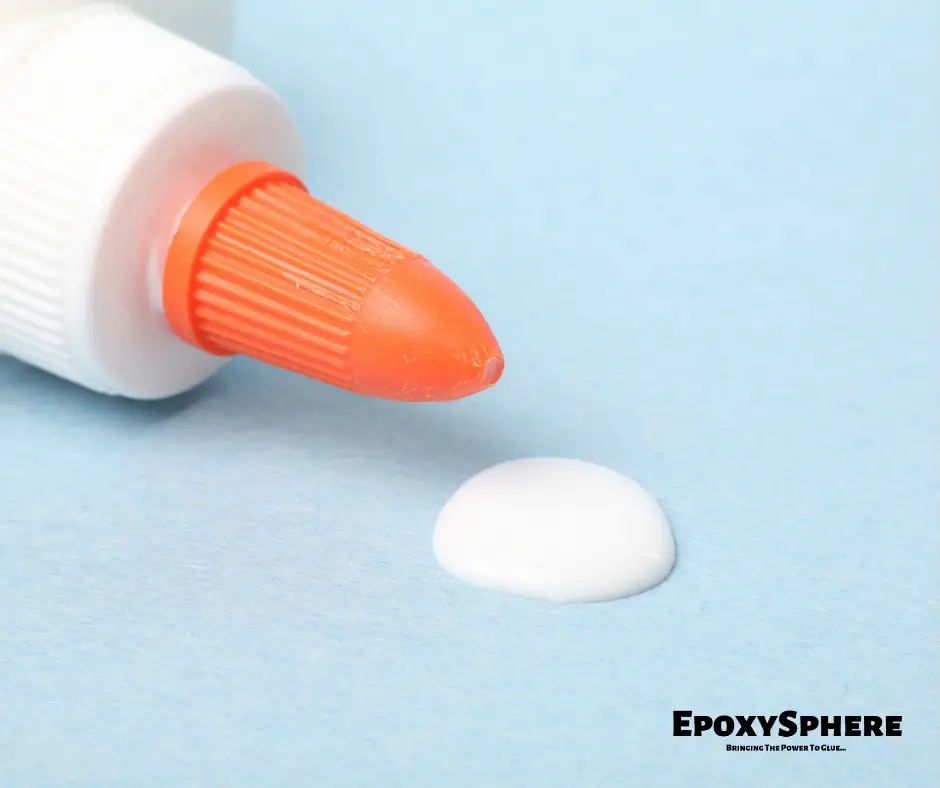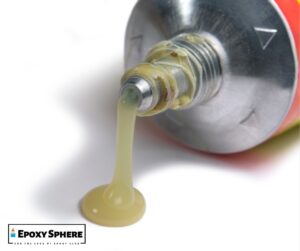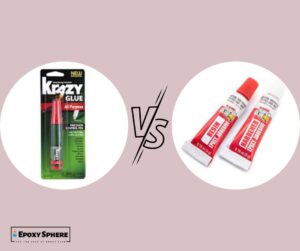
We’re all looking for cheap, easy solutions to projects. And many times, we add wood glue to the top of our supply list because it’s one of the simplest and most cost-effective glues available.
So you grab the wood glue and head home to create your project. But one crucial thing is adhesion for binding materials together. But is wood glue stronger than epoxy?
Yes, wood glue is stronger than epoxy. This is because epoxy is designed to bond two surfaces together while still allowing them to move slightly with each other.
This can be useful in situations where you want something to apply pressure but still be able to move if needed. Also, epoxy takes lesser time to cure than wood glue.
Wood Glue vs Epoxy
Both wood glue and epoxy are strong adhesives that can be used in a variety of situations. They each have different strengths, though, and each should be used for their specific applications.
Wood Glue
Wood glue is a water-soluble adhesive made from natural materials like flour or starch. It’s usually applied with an applicator tip or brush and dries clear. Some types of wood glue can be painted over with latex paint after they’ve dried.
Wood glue is also known as carpenter’s glue or yellow glue because of its color. One important thing to note about wood glue is that it doesn’t harden until it dries out completely, so there’s no need for special tools or equipment when using it on your projects at home.

Epoxy Glue
Epoxy glues are two-part systems that harden when mixed in equal parts by volume.
These two components react chemically to create a waterproof bond that also resists moisture, heat, and cold better than most other glues on the market today.
The epoxies come in many varieties depending on the materials you’re working with.
Whether plastic, metal, concrete, or wood, they all have similar properties: high strength and durability under extreme conditions.
It is used in many commercial applications and can be bought at most hardware stores.
The most common application for epoxy is in boat building, where boaters use it to seal seams between fiberglass hulls and decks.
What Is The Most Powerful Glue For Wood?
The most powerful glue for wood depends on what you’re glueing and what you want it to do. If you have a small project or need to do something quickly, there are plenty of options that will work.
But if you have a large project or need something stronger than wood glue will provide, there are stronger adhesives available.
In general, super-strong glues tend to be more difficult to use than less powerful ones. They require extra preparation and sometimes special tools, and they’re often more expensive as well.
If your project requires a lot of glue, it may be worth it to invest in a good-quality glue gun with enough power to make the job easier.
Can You Use Epoxy To Glue Wood?
Yes, you can use epoxy to glue wood, but there are some things you should know. Epoxy is a two-part adhesive that cures when mixed and exposed to heat.
It’s commonly used in boatbuilding and manufacturing, as well as by hobbyists who want to make sure their projects are watertight.
Epoxy can be used on wood, but it’s not always necessary. The two parts of the adhesive bond together without the need for heat.
How To Use Epoxy To Glue Wood
The main thing to remember when using epoxy is to work in a well-ventilated area because it has a very strong odor.
Also, make sure the surfaces you’re bonding are clean and dry and don’t use any oil-based products on them beforehand. Apply epoxy on wood using the following steps:
Step 1:
Clean and dry the surface of both pieces of wood you want to glue together with sandpaper or steel wool.
Step 2:
Apply epoxy liberally onto both surfaces; spread with your fingers until you’ve covered every part that will touch each other when pressed together. Apply a thin coat of epoxy to both surfaces using an applicator brush or spreader. If you’re using liquid epoxy, you can also apply it with your fingers, but be sure not to get any on your hands because it will stick to them for hours.
Step 3:
Press them together firmly for about 30 seconds, then hold them in place for at least five minutes while the glue cures. Let the epoxy dry completely before you try to move the pieces together. If you try to put pressure on the pieces too soon, you’ll get bubbles between them and they won’t adhere properly.
Does Wood Glue Have a Strong Hold?
It depends on the type of wood glue and the type of wood you are gluing together.
Most wood glues have an excellent initial grab and strong early strength, but they usually lose some of their strength over time.
If you’re using wood glue to fix a broken chair leg, it might hold just fine. But if your goal is to repair a piece of furniture that will be used every day, then you might want to consider something a little more heavy-duty.
There is no such thing as a “stronghold” when it comes to wood glues, just different levels of adhesion between two pieces of wood.
The amount of force required to separate those two pieces will depend mostly on the quality and quantity of the bond formed between them by their respective surfaces.
So, wood glue can relatively have a stronghold or not, depending on some factors.
How Long Does Epoxy Last on Wood?
The longevity of epoxy on wood depends on the type of epoxy that you use as well as what kind of wood you are using.
The most common type of epoxy is polyurethane, which is a two-part resin that hardens when it dries out. This means that the amount of time it takes for the epoxy to dry will determine how long it lasts on wood.
The best way to determine how long your epoxy has lasted on your piece of wood is by testing it with a knife or screwdriver tip before installing anything else onto your piece of furniture.
If the surface scratches easily, then there is no point in using any more glue because it will not bond properly with the existing glue underneath it, anyway.
Final Note
Ultimately, both wood and epoxy glues are strong and durable. However, you can’t go wrong with wood glue. If you’re thinking of repairing a broken wooden object or want to create a strong bond for a woodworking project, wood glue is the best option for the job.

Hi, This is John Davis. After years of working in the construction industry, I decided to create a website that would provide people with information about glue and its exceptional uses. I hope You find it useful






